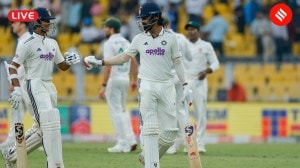Fixed Lok Sabha terms are not democratic
When the Vajpayee government sought a vote of confidence in April this year, L.K. Advani had opened his speech by citing the example of G...

When the Vajpayee government sought a vote of confidence in April this year, L.K. Advani had opened his speech by citing the example of Germany which has a fixed term for its Parliament and where unless an alternative is in place, no one can move a no confidence motion.
The suggestion may seem attractive given the quick succession of elections we have had. The BJP manifesto, still to be released officially, has reportedly pro-mised a fixed term for the Lok Sabha. But India is not Germany and in a diverse and unequal society like ours, with a multi-party system, this move can create more problems than it can resolve.
Had there been a fixed five-year term for the Lok Sabha when the Vajpayee ministry fell in April this year, Sonia Gandhi might have become Prime Minister. But it is also possible that Mulayam, Jayalalitha and others would not have supported her for more than a few weeks, leading either to the withdrawal of cases against the AIADMK chief, or to the demise of that government.
In the nextround, the BJP could have come to power again possibly with the help of the Janata Dal. Or the Congress might have split. This almost happened just before I.K. Gujral resigned in 1997. And it is not necessary that this dispensation would have lasted very long either. A merry-go-round might have followed in which anyone from Jyoti Basu to Kanshi Ram could have headed a government in an arrangement of convenience.
Or the different parties could have evolved the BJP-Mayawati type of understanding fo-rged in UP where she headed the government for six months and the BJP would have lead it for another six, had the BSP leader not gone back on her word.
A fixed term for the Lok Sabha may give stability to Parliament but not necessarily to the government or to the political system. It may in fact lead to a greater fragmentation of political parties. Party leadership is also likely to get weakened. Knowing that elections will take place only five years down the line, the MPs are less likely to listen to theirleaders. Today they know they will have to go to them for tickets if a mid-term poll were to take place.
The Vajpayee Government has taken more controversial decisions in the five months after its fall than in the 13 months preceding it. It attracted a lot of flak in the process, but it could ignore it because it was not accountable to anyone neither to its troublesome allies, nor to Parliament, nor to the President, who has from time to time tried to exert an influence on it but without success.
With a frequent change in governments, leaders willing to be more unscrupulous and unprincipled will tend to come to the fore. For MPs, and small caucuses, will demand their pound of flesh in return for support.The bureaucracy will become more spin-eless and politicised. In time, it will become less accountable to both people and politicians. The Prime Minister’s authority could also diminish and the Union Cabinet may become as large and unwieldy as the ministries in Har-yana and UP. All this will affectgovernance adversely.
A fixed term for the Lok Sabha would also encourage the politics of wheeling-dealing and patronage. As it is, governments are increasingly becoming like mafias and those who don’t conform, get squeezed out. Look at the way tickets get disbursed at election time. Those in the apex decision-making committees decide to strike deals among themselves. It is a matter of “you clear my candidate and I will clear yours”.
There was a time when Jayaprakash Narayan was alive and the recall of MPs to provide greater accountability was a hotly debated issue. But such commitments to honesty in public life is just history. Today most MPs are tired of frequent elections. The BJP hopes to cash in on this sentiment by promoting the idea of fixed Parliamentary terms. To push through this move would require a Constitutional amendment. Therefore, while it may be difficult for any party to do this, it is by no means impossible.
But were this to come through, Indian democracy would be the worse for it.The sword of a no-confidence motion a vital tool of the parliamentary process can keep a government on its toes. The fear of a mid-term election can force MPs to nurse their constituency, and this was so evident in the 12th Lok Sabha, as members rushed back to their constituencies as soon as they possibly could, knowing that polls were imminent in a House as fractured as this one was.
The money spent on a general election may be large but, in an economy as large as ours, it is still negligible. Elections then may be a necessary evil for this country provided, of course, that frequent polls can lead to a greater accountability in the system. Political stability may be a mantra for some but there are others like Kanshi Ram and Maya-wati who welcome frequent elections for the simple reason that every successive poll makes their constituents more politically aware and gives their party greater clout.
It is the widening gap between the political system and society that makes for the growing politicalinstability. Fixing the term of the Lok Sabha is a legalistic and undemocratic response to a political challenge.A government may last five years and do little that is worthwhile. The issue is one of better delivery and greater accountability, not of stability.







- 01
- 02
- 03
- 04
- 05
























